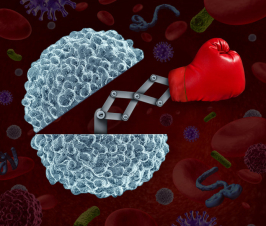Node Smith, ND
More to Gut Flora Than Probiotics and Fermented Foods
Scientific and medical awareness of the importance of gut bacteria is growing rapidly, and it is becoming common knowledge that the human microbiome is incredibly important to health. But there’s more to healthy gut flora than merely taking a probiotic or eating fermented foods. The bacteria in our digestive tract needs nutrition, just like any other organism or cell. Dietary fiber is a primary source of this bacterial nutrition, and one of the ways fiber influences weight, blood glucose levels and insulin sensitivity.
Recent Research Shows that Fiber is also Responsible for Keeping the Colon Healthy
Fiber, aside from its nutritional role and ability to bind toxins and regulate blood sugar levels, plays a very important mechanical role. In the colon, fiber plays a crucial role in bulking the stool and “cleaning” out the colon. Many individuals experience irregular bowel movements, inadequate evacuation, slow motility, and loose stools simply because they aren’t getting enough fiber in their diet. Fiber is available in varying degrees in virtually all plant material, and whole grains – it’s what gives plant material its structure (in an oversimplified explanation). The trouble is, there is virtually no fiber in high-carbohydrate, refined or processed foods – and also in meat, dairy or eggs.
Low Fiber Diets Associated with Increased Risk of Inflammatory Bowel Disease
Low fiber diets are associated with diets higher in fat and carbohydrates, both of which are associated with an increased risk of inflammatory bowel disease, weight gain, and diabetes. Recent research has shown that the inner mucosal layer of the colon shows increased bacterial penetrability after just 3 days on a low-fiber diet. This increased penetrability could increase risk for inflammatory bowel disease. This inner mucus layer is the barrier that separates bacteria from the body’s cells.
Introducing Inulin
In experiments, when a dietary supplement of “friendly bacteria” were introduced to the colon of low fiber fed animals the mucus layer did actually regrow, BUT, it did not prevent the bacteria from infiltrating the mucosa into the body’s cells. When inulin was subsequently introduced, the barrier’s ability to separate bacteria from the body’s cells was regained.
Friendly Fiber
It appears that fiber plays a complex role in regulating the healthy bacterial flora in the entire digestive tract, and supplementing with probiotics may not have the therapeutic effects without also increasing fiber intake in some cases.
Source:
Image Copyright: <a href=’https://www.123rf.com/profile_sarsmis’>sarsmis / 123RF Stock Photo</a>
 Node Smith, ND, is a naturopathic physician in Portland, OR and associate editor for NDNR. He has been instrumental in maintaining a firm connection to the philosophy and heritage of naturopathic medicine among the next generation of docs. He helped found the first multi-generational experiential retreat, which brings elders, alumni, and students together for a weekend camp-out where naturopathic medicine and medical philosophy are experienced in nature. Four years ago he helped found the non-profit, Association for Naturopathic ReVitalization (ANR), for which he serves as the board chairman. ANR has a mission to inspire health practitioners to embody the naturopathic principles through experiential education. Node also has a firm belief that the next era of naturopathic medicine will see a resurgence of in-patient facilities which use fasting, earthing, hydrotherapy and homeopathy to bring people back from chronic diseases of modern living; he is involved in numerous conversations and projects to bring about this vision.
Node Smith, ND, is a naturopathic physician in Portland, OR and associate editor for NDNR. He has been instrumental in maintaining a firm connection to the philosophy and heritage of naturopathic medicine among the next generation of docs. He helped found the first multi-generational experiential retreat, which brings elders, alumni, and students together for a weekend camp-out where naturopathic medicine and medical philosophy are experienced in nature. Four years ago he helped found the non-profit, Association for Naturopathic ReVitalization (ANR), for which he serves as the board chairman. ANR has a mission to inspire health practitioners to embody the naturopathic principles through experiential education. Node also has a firm belief that the next era of naturopathic medicine will see a resurgence of in-patient facilities which use fasting, earthing, hydrotherapy and homeopathy to bring people back from chronic diseases of modern living; he is involved in numerous conversations and projects to bring about this vision.

















